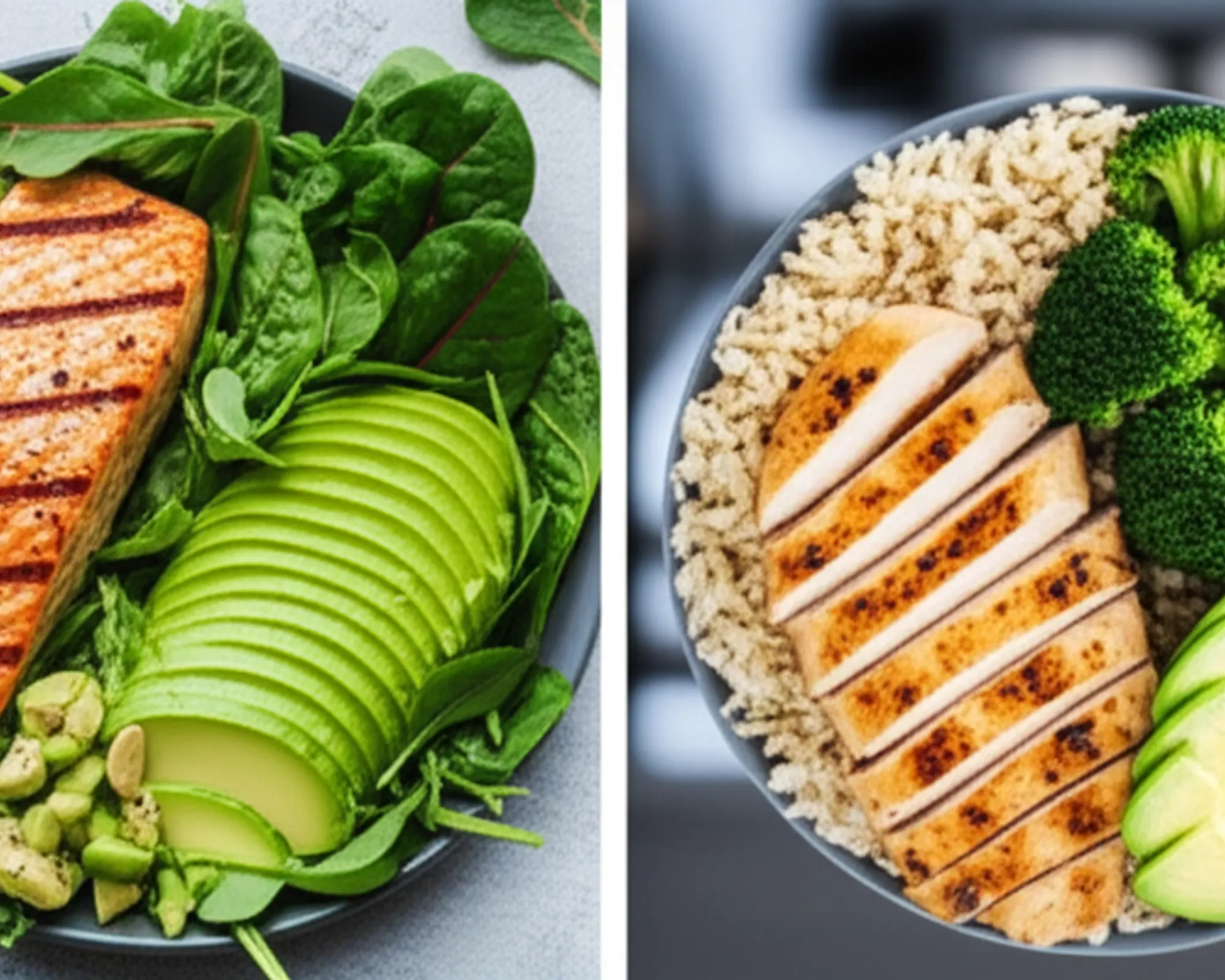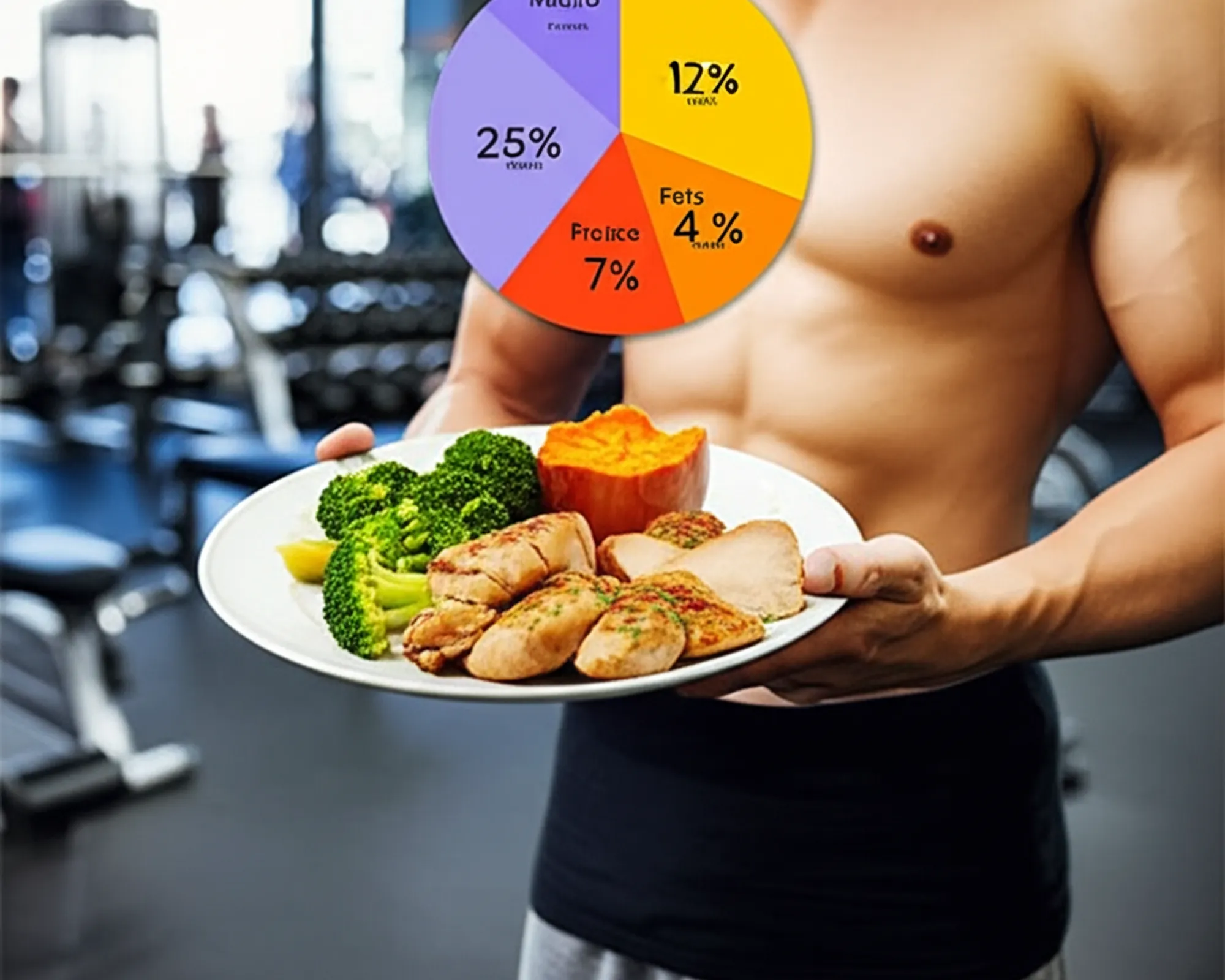The Role of Carbs in Post-Workout Recovery

Understanding Post-Workout Recovery
After pushing your body through an intense workout, whether it's lifting heavy weights, pounding the pavement, or engaging in a high-intensity interval session, your muscles aren't just tired – they're craving replenishment. Post-workout recovery is a critical phase, often overlooked but absolutely essential for muscle repair, growth, and preparing your body for the next challenge. It's during this window that your body is most receptive to nutrients, and among these, carbohydrates play a starring role.
The Energy Currency: Glycogen Depletion During Exercise
To understand why carbs are so vital, we first need to talk about glycogen. Glycogen is the stored form of glucose, primarily found in your liver and muscles. It's your body's primary and most readily available fuel source during exercise. When you work out, especially during moderate to high-intensity activities, your body rapidly depletes these glycogen stores to power your muscles. The more intense or prolonged your workout, the greater the depletion. If you consistently train with depleted glycogen stores, you'll experience reduced performance, increased fatigue, and impaired recovery, potentially leading to overtraining and a plateau in your progress.
Carbohydrates: The Glycogen Replenishers
This is where carbohydrates come into play. Consuming carbohydrates after a workout is crucial because they are the raw material your body uses to resynthesize muscle and liver glycogen. When you ingest carbs, they are broken down into glucose, which is then transported to your muscle cells and converted back into glycogen, effectively refilling your energy tanks. This replenishment is paramount for several reasons:
- Restored Energy Levels: Replenishing glycogen ensures you have adequate fuel for future workouts, preventing feelings of sluggishness and fatigue.
- Enhanced Performance: Full glycogen stores allow for more intense and sustained performance in subsequent training sessions.
- Reduced Muscle Breakdown: When glycogen is low, your body may start to break down muscle protein for energy, a process known as gluconeogenesis. Consuming carbs helps spare muscle protein, promoting a more anabolic (muscle-building) state.
The Insulin Response: A Key Player in Nutrient Delivery
Beyond simply providing glucose, carbohydrates also trigger a crucial hormonal response: the release of insulin. Insulin, often dubbed the "storage hormone," plays a vital role in post-workout recovery. After you consume carbs, your blood glucose levels rise, signaling the pancreas to release insulin. Insulin then acts like a key, unlocking muscle cells to allow glucose to enter and be converted into glycogen. But its benefits extend further:
- Amino Acid Transport: Insulin also helps transport amino acids (the building blocks of protein) into muscle cells, which is essential for muscle repair and growth.
- Reduced Cortisol: Intense exercise elevates cortisol, a catabolic hormone that can break down muscle tissue. Insulin helps to lower cortisol levels, shifting your body from a catabolic to an anabolic state.
This synergistic effect of carbs and the subsequent insulin response creates an optimal environment for recovery and muscle adaptation.
Timing is Everything: The Anabolic Window
While the concept of a rigid "anabolic window" has been debated, it's generally accepted that consuming carbohydrates (and protein) relatively soon after exercise is beneficial. The period immediately following a workout, often referred to as the "post-exercise window" or "anabolic window" (typically 30 minutes to 2 hours), is when your muscles are most sensitive to insulin and most receptive to nutrient uptake for glycogen resynthesis and repair. During this time, the enzymes responsible for glycogen synthesis are highly active, making it an opportune moment to refuel. Delaying carbohydrate intake significantly can slow down the glycogen replenishment process, potentially impacting subsequent performance and recovery.
How Much and What Kinds of Carbs?
The optimal amount of carbohydrates for post-workout recovery depends on several factors, including your body weight, the intensity and duration of your workout, and your overall fitness goals. A general guideline for endurance athletes or those undertaking intense resistance training is to consume 0.8-1.2 grams of carbohydrates per kilogram of body weight within the first few hours post-exercise. For a 70kg individual, this translates to roughly 56-84 grams of carbohydrates.
Regarding the types of carbs, many experts recommend a mix. Fast-acting carbohydrates (high glycemic index) such as dextrose, maltodextrin, white rice, bananas, or sports drinks are excellent immediately post-workout. They are quickly digested and rapidly raise blood glucose, leading to a swift insulin response and rapid glycogen replenishment. Later in the recovery process, or as part of your subsequent meals, incorporating slower-digesting, complex carbohydrates like whole grains, sweet potatoes, oats, and legumes can provide sustained energy and micronutrients.
Synergy with Protein: The Ultimate Recovery Duo
While carbohydrates are crucial, they work even better when paired with protein. A combination of carbohydrates and protein (typically a 3:1 or 4:1 carb-to-protein ratio) is often recommended. Protein provides the amino acids necessary for muscle repair and growth, while carbohydrates facilitate their delivery and help to create an anabolic environment. This combination has been shown to enhance glycogen resynthesis and muscle protein synthesis more effectively than consuming either nutrient alone.
Practical Examples of Post-Workout Carb Sources
Incorporating effective carb sources into your post-workout routine doesn't have to be complicated. Here are some excellent options:
- Sports Drinks: Often contain easily digestible sugars and electrolytes for quick rehydration and energy.
- Bananas: A great source of simple sugars and potassium.
- White Rice with Chicken/Fish: Provides both fast-acting carbs and protein.
- Oatmeal with Fruit: A good blend of complex carbs, fiber, and simple sugars from fruit.
- Potatoes or Sweet Potatoes: Excellent sources of complex carbohydrates.
- Rice Cakes with Jam: Quick, easily digestible carbs.
- Fruit Smoothies: Can be customized with fruit (carbs), protein powder, and other beneficial ingredients.
Common Misconceptions and Mistakes
One common mistake is avoiding carbohydrates post-workout due to fear of weight gain, especially in low-carb or ketogenic diets. While these diets have their place, for individuals engaged in regular, intense exercise, adequate post-workout carbohydrate intake is non-negotiable for optimal recovery and performance. Another mistake is relying solely on protein shakes without incorporating sufficient carbohydrates, thereby missing out on crucial glycogen replenishment.
Conclusion: Fueling for Performance and Growth
In summary, carbohydrates are not the enemy; they are a fundamental component of effective post-workout recovery for anyone serious about their fitness goals. They are essential for replenishing depleted glycogen stores, stimulating insulin for optimal nutrient delivery, and sparing muscle protein from being used as fuel. By understanding the critical role of carbs and implementing smart post-workout nutrition strategies, you can significantly enhance your recovery, boost your performance, and accelerate your progress towards a stronger, more resilient body. Don't underestimate the power of a well-timed and wisely chosen carbohydrate source – it's the fuel that drives your gains.


